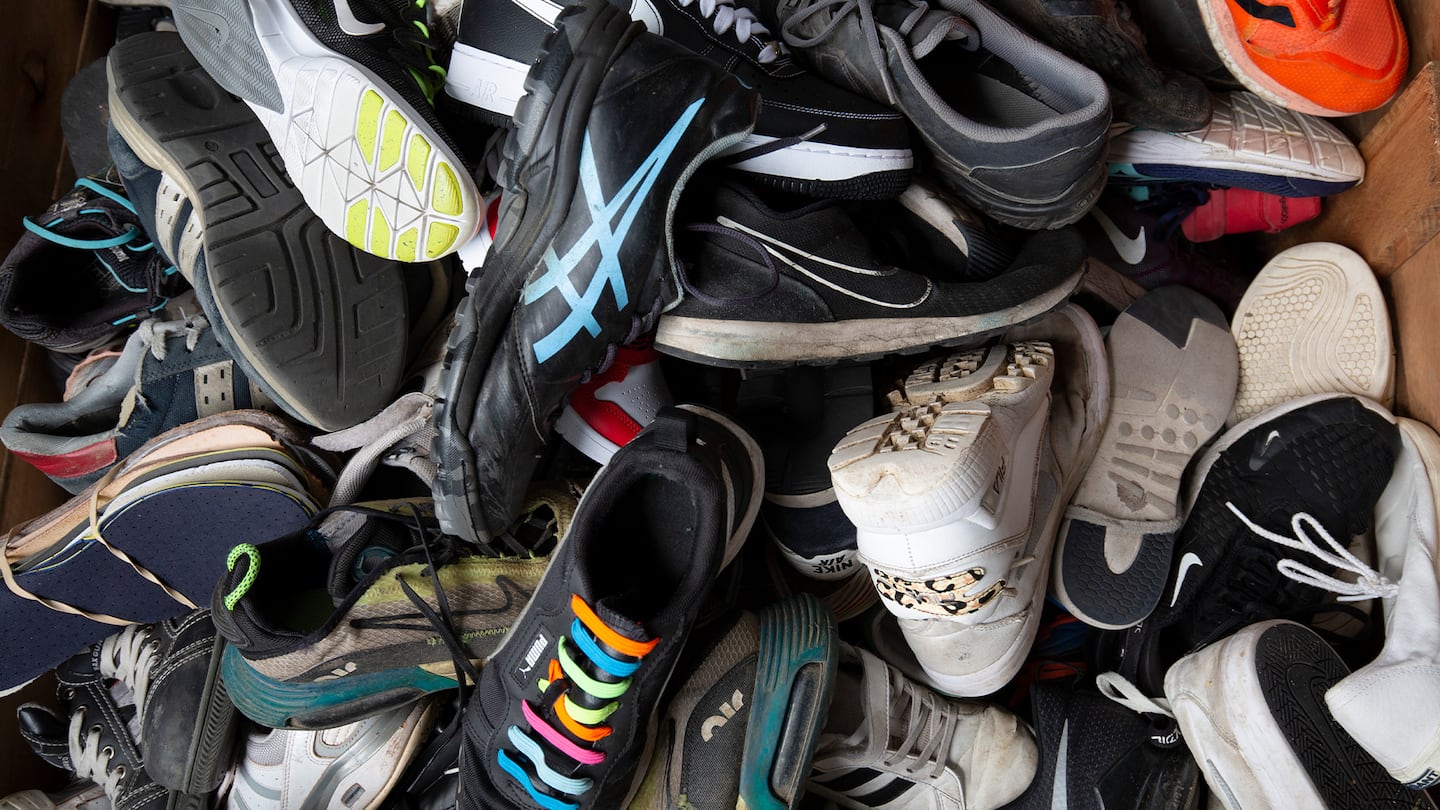
Agenda-setting intelligence, analysis and advice for the global fashion community.

Agenda-setting intelligence, analysis and advice for the global fashion community.

Last January, the manager of MIT’s Fabric Innovation Hub, Yuly Fuentes-Medel, started getting calls from footwear companies.
The businesses were scrambling to get a handle on how to make their industry more circular and sustainable amid growing pressure to deliver on climate commitments. As it happened, MIT had conducted one of the only publicly available environmental-impact assessments for running shoes — a decade earlier.
Fuentes-Medel’s mind was blown. There seemed to be no consensus on what a sustainable or circular footwear industry even meant, and the sector was leaning on dated and limited information to try and solve fiendishly tricky challenges for one of the most complex products on the market. A typical shoe is made of dozens — sometimes hundreds — of individual parts. The materials used are hard-wearing and high-impact leather and plastics. And by design, the products are difficult to break apart, which makes reuse or recycling difficult.
To try and unpack some of these hurdles, Fuentes-Medel hosted a summit for the sector at MIT a few months later. A key conclusion: Footwear companies needed to start working together to tackle shared problems and develop more sophisticated datasets to guide action.
ADVERTISEMENT
A multitude of such industry initiatives already exist for apparel, but none address the specific complexities involved in footwear. And while individual shoe brands like Adidas and Swiss running brand On have made moves to develop shoes with a lower environmental footprint or the capacity to be fully recycled, few initiatives have managed to scale.
A new collective of eight brands formed under the nonprofit EarthDNA with Fuentes-Medel at the helm is hoping to change that by forging opportunities for companies to work together to more effectively drive progress. The founding members — On; New Balance; Target; Crocs, Inc.; Brooks Running; Reformation; Ecco and Vibram — represent a range of products, price points and scale.
“This is the first of its kind for footwear,” said Crocs’ global head of sustainability and ESG, Deanna Bratter. “There are very unique challenges for the footwear industry that require unique solutions at every step.”
To be sure, such industry initiatives have a dubious track record of delivering real action, with the most high profile often becoming a lightning rod for accusations of greenwashing.
Fuentes-Medel is determined that won’t be the case in this instance.
Over the next six months, The Footwear Collective will scope out and prioritise a series of projects intended to help develop and scale circular materials and infrastructure and influence consumer behaviour.
“We need a new model of collaboration for the industry,” said Fuentes-Medel. “The companies launching with us are the ones ready to act.”
Millions of tonnes of T-shirts and dresses are dumped or burned every year. Turning old clothes into new ones is possible – the question is whether it is a realistic solution.
Companies like H&M and Primark are increasingly offering to take back unwanted clothes for resale and recycling. Instead they can end up downcycled, destroyed or dumped, according to a new report from Changing Markets Foundation.
It’s taken Adidas nearly twenty years to find a way to recycle its sneakers, but can breakthroughs like this solve fashion’s waste problem?

Sarah Kent is Chief Sustainability Correspondent at The Business of Fashion. She is based in London and drives BoF's coverage of critical environmental and labour issues.
This week, Italy’s Competition Authority closed a probe into whether Dior misled consumers about working conditions at its suppliers without finding any wrongdoing. But a new case linking Valentino to poor labour practices suggests this is a problem that won’t go away easily.
The investigation into whether Dior misled consumers about working conditions at its suppliers concluded without finding any wrongdoing, after Dior made a number of commitments to tighten up its controls and communication.
Over the last month, a flurry of companies with backers from H&M to Inditex have advanced plans to build their first industrial-scale textile-to-textile recycling plants, advancing a technology that is often held up as a holy-grail-like solution to many of fashion’s environmental ills.
Efforts to map the footwear industry’s carbon footprint have lagged behind those in fashion. A new study aims to start addressing that.